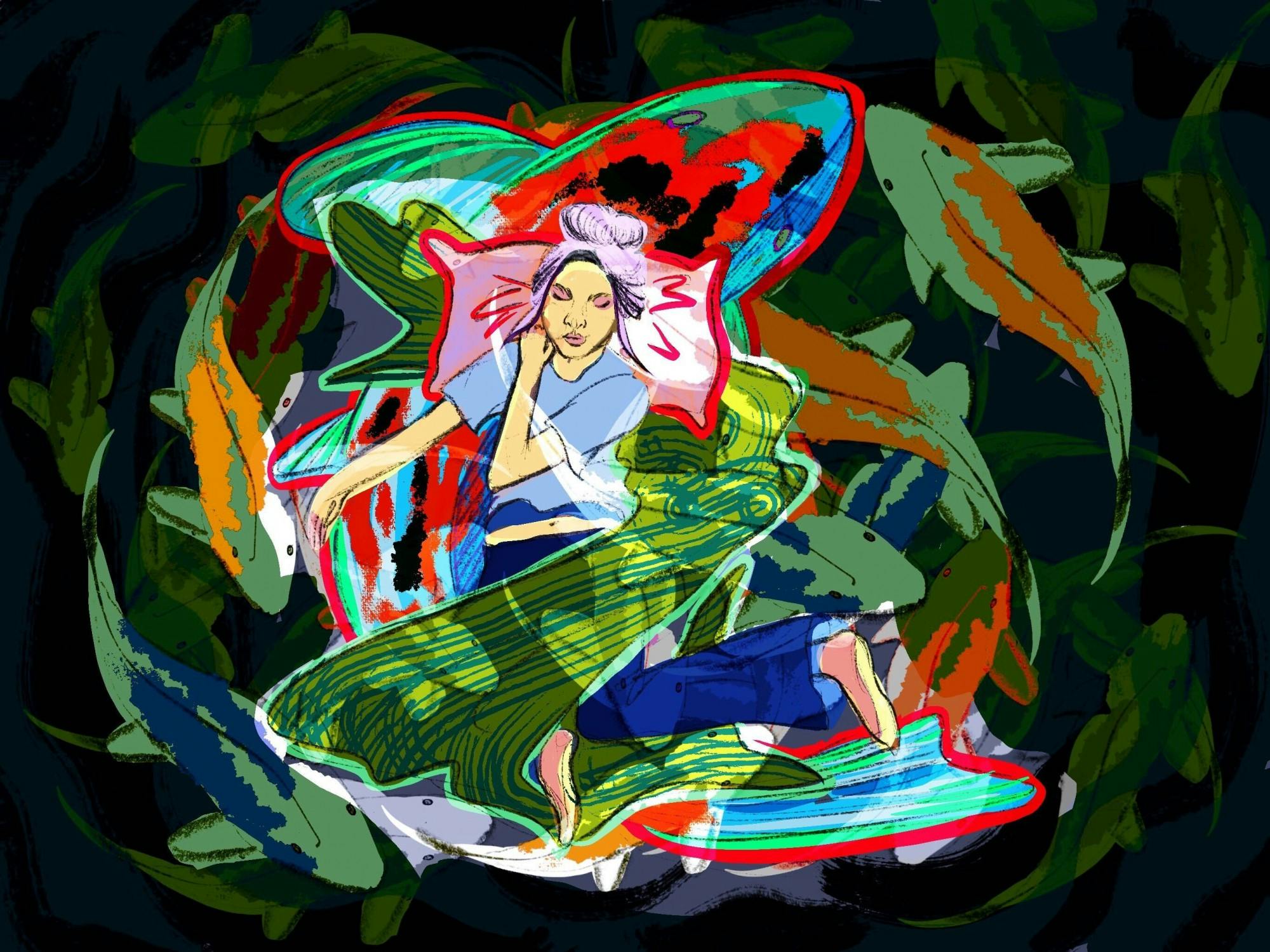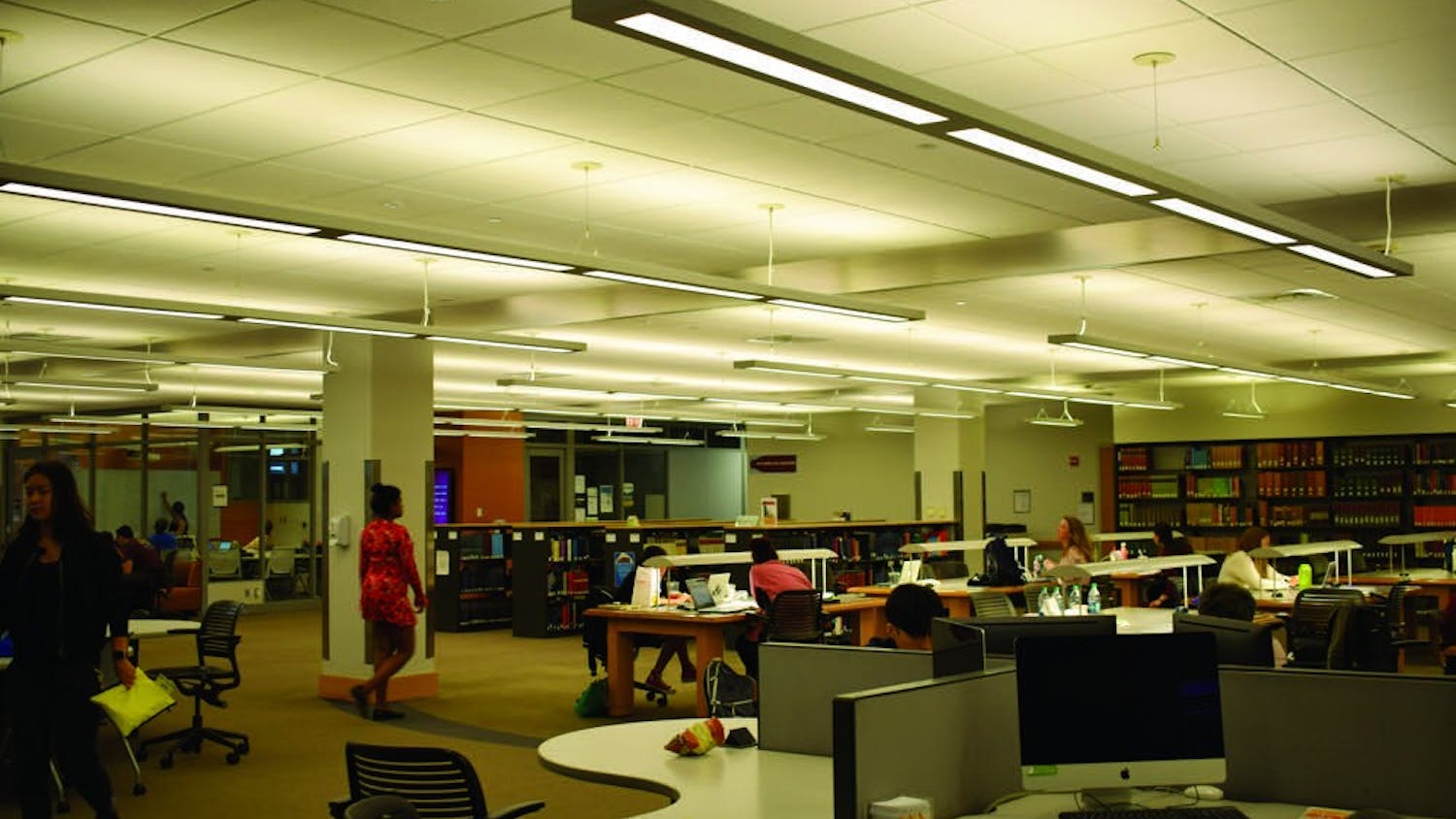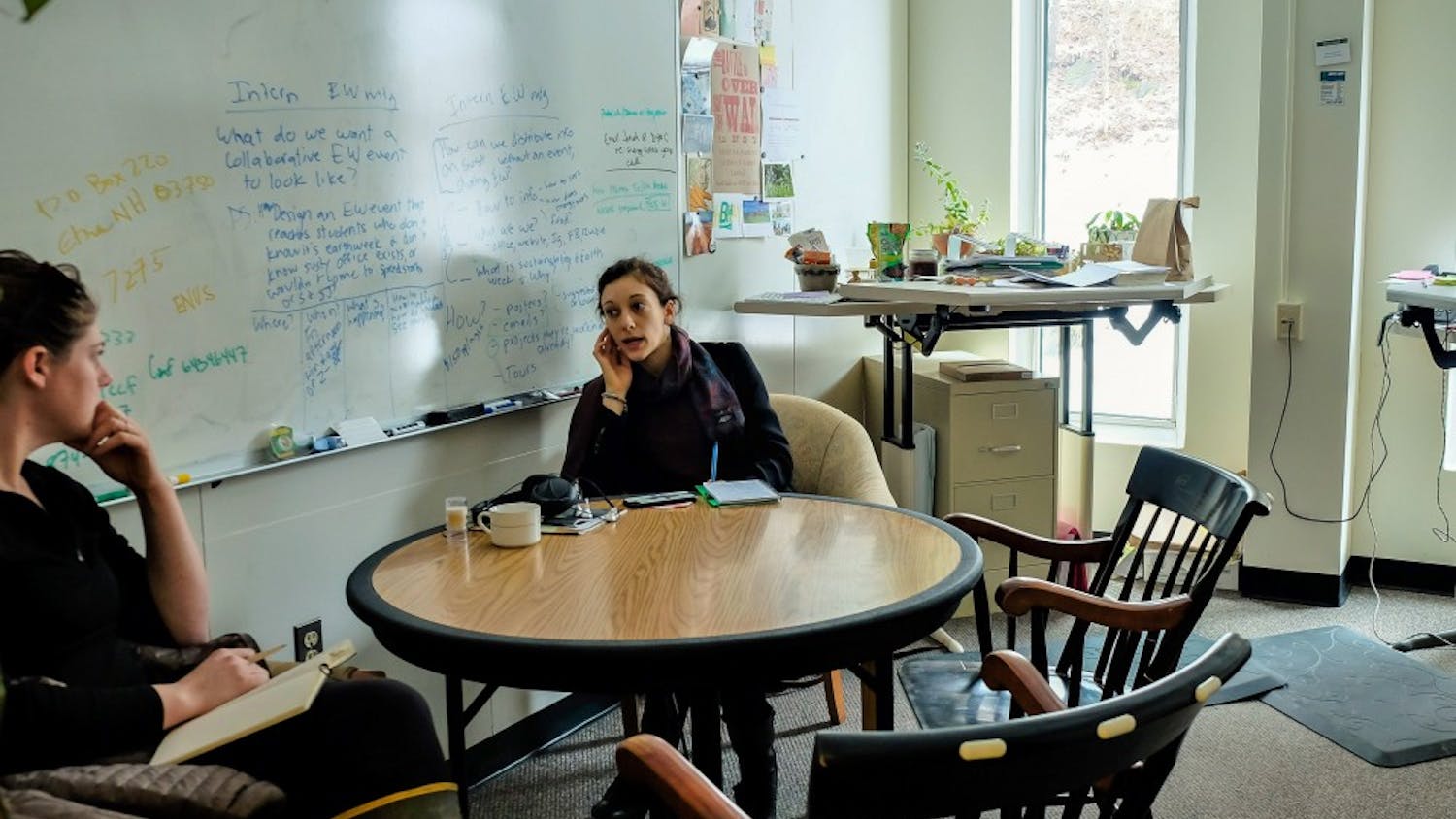“My best friend and I got invited to go to Italy for one day to do some type of competition. When I got to the airport, I didn’t have my passport, so I got dragged to a correctional facility by a police officer. He sniffed my ID and was like, ‘Oh yeah, you’re a sketchy guy.’ I smelled it, and it smelled like cigarettes.”
Finn Hulse ’23 told me about one of his most recent dreams: a long stream of events that began with him losing his passport, trying to explain a complicated physics problem to a room full of his 35 cousins and finally arriving back in his bedroom, watching his brother shoot hoops outside.
Right now, society is buzzing with talk of crazy dreams. Tales of “quarantine dreams” are all over Twitter, and “i dream of covid,” a blog that compiles submissions of strangers’ dreams, is gaining media attention. People all over the world are reporting more vivid and frequent dreams and nightmares, and Dartmouth students are no different.
So what’s causing these dreams? Are they some crazy coincidence? Or perhaps an example of Carl Jung’s concept of the “collective unconscious,” which holds that we all dream of symbols with uniform meanings?
According to dream researcher Deirdre Barrett, an assistant professor of psychology at Harvard Medical School, the phenomenon of “quarantine dreams” has a few relatively simple explanations. In short, it can be chalked up to two main changes: a more anxious waking life and an altered sleep cycle.
With newfound free time, many people are catching up on sleep and likely experiencing more REM cycles — the sleep cycles during which vivid dreams occur. In addition, the content of our waking lives has undergone a massive change. The anxiety and stress associated with COVID-19 may manifest itself in dreams, similar to the way in which many Americans’ dreams reflected emotional distress after 9/11.
In a study of the impact of 9/11 on dreams, researchers at Tufts University found that participants had more intense dreams after the attacks. These findings support the “contemporary theory of dreaming,” which argues that dreams are non-random reflections of the emotions we experience in real life. The imagery within a dream may not resemble an actual traumatic event, but often the feelings associated with the event will carry over. This might explain why people who are not dreaming directly about COVID-19 are still experiencing increased stress dreams or nightmares during quarantine.
That being said, a few common images have been showing up in a survey of COVID-19 dreams that Barrett is conducting. She told the Los Angeles Times that survey respondents have been dreaming about insects, as well as lethal injections and tidal waves.
Barrett also noted a parallel between the dreams people are experiencing now and dreams that, according to a study conducted during World War II, British soldiers had in a Nazi prisoner-of-war camp. Just as soldiers in that study dreamed about the foods that they couldn’t have in the camp, people today are dreaming about foods they can’t access during quarantine.
Blake Whitmer ’23 — whose dreams have become more frequent and vivid during the pandemic — has dreamed about a few of the common images Barrett described, including specific foods and tidal waves.
“The first thing that I can remember is that I was riding in a car, and I think my great aunt was angry at me; I forget why. Maybe I said a bad word,” Whitmer said, recalling a recent dream. “After that, I was ordering food. Someone gave me some type of food, and I said, ‘No, this isn’t healthy.’ I turned it down and got Greek yogurt. I also got a very small personal pizza, but when I got to the register, they gave me a coupon for $10. I was like, ‘Wait, this would actually pay for an entire medium pizza,’ and I was so upset.”
Julia King ’23 has been vividly dreaming her whole life, but even she has experienced an uptick in dreams during quarantine. She said that she hasn’t dreamed this consistently since she was around 12 years old.
“I remember that there was a castle at the end of an ocean, and it was really beautiful and there were lots of treasures inside,” King said. “But when night fell, it became kind of scary because as it turned out, there was a graveyard nearby, and you could see all the spirits. It reminded me of a fairy tale I had read a long time ago.”
King’s dream inspired her to start writing a novel. Now, she is 23 days and 32,000 words in. The book is an adaptation of “East of the Sun and West of the Moon,” a Norwegian folk tale, and it retains scenery from her dream.
While King’s dreams have a more fantastical tilt, Hulse has noticed a direct correlation between rising stress dreams and anxieties in his real life. He said that he believes his increased time thinking introspectively during the pandemic has affected his recent dreams.
“My analogy for a dream is when you flush a toilet, and all the things that have happened just get mixed together and blurred,” Hulse said. “It’s sort of how your brain processes everything and sucks it all down. I feel like my toilet is now full of my own thoughts, including things that I wouldn’t have thought about otherwise.”
While Hulse and many others believe that “quarantine dreams” are caused by disruptions and changes in our lives, Whitmer entertains another theory.
“As humans, we believe that everything we see has a cause — that it was put there for a reason,” Whitmer said. “Dreams are fascinating because you never end up seeing what that cause is. Maybe our dreams aren’t caused. Maybe we’re looking into this for no reason, and it’s just pure spontaneity.”




